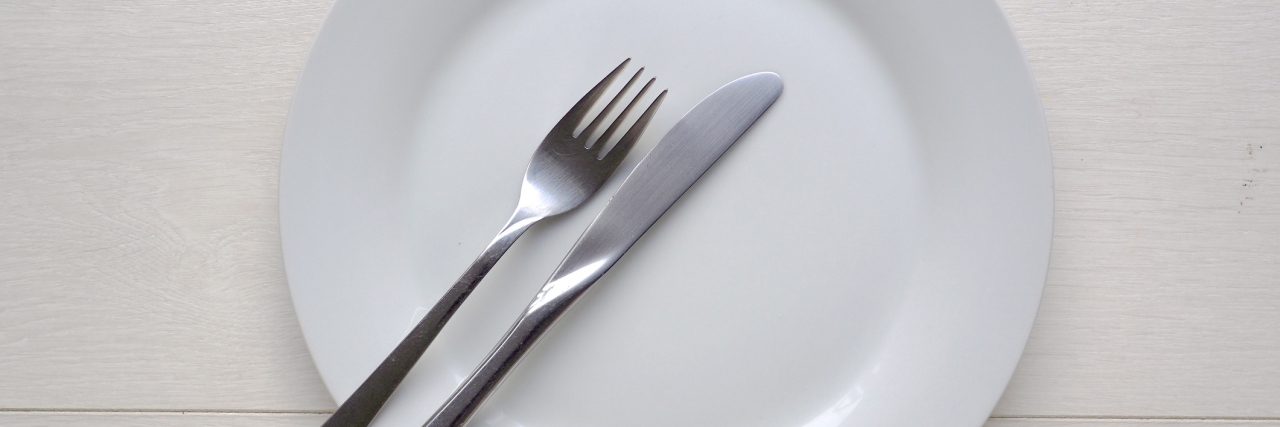These Diet Trends Aren't Revolutionary, They Glorify Anorexic Behaviors
Sometimes the news isn’t as straightforward as it’s made to seem. Haley Quinn, The Mighty’s Mental Health staff member, explains what to keep in mind if you see this topic or similar stories in your newsfeed. This is The Mighty Takeaway.
Publications love to report on the latest trendy diets. Those promoting recently reported fad diets include Breatharians — who claim to lead healthy “food-free lifestyles” using just the energy of the universe to survive — and Silicon Valley execs, who are experimenting with extended periods of fasting, insisting this behavior is a form of “biohacking” and not “dieting.”
But we’re missing the larger picture here — these diets continue to put restrictive eating on a pedestal. Such extreme diets masked by smiling faces, wealth, successful careers or the word “healthy” send the wrong messages to everyone — not just those in the throes of an eating disorder (ED) or eating disorder recovery.
San Francisco-based eating disorder specialist Shrein Bahrami commented on the Silicon Valley execs who rationalize their fasting by wearing glucose monitors, stating, “The hyper focus on tracking vital signs and food has become normalized, so it’s difficult to know when it’s become obsessive.” It can be common to attach an eating disorder such as anorexia to it’s outward physical markers, forgetting that at the core of most eating disorder (and one of the first markers of its onset) are obsessive thoughts around food and body image.
According to the National Eating Disorder Association (NEDA), 35 percent of “normal dieters” progress to pathological dieting. And of those, 20 to 25 percent progress to partial or full-syndrome eating disorders. These diets aren’t revolutionary, they just glorify anorexic behaviors.
In the case of the Breatharians, the amount of food they say they are consuming would put them at a near-total starvation level. Registered dietician Abby Langer commented on the groups claims, saying, “Food and water really aren’t optional.” And she’s right. Human beings can only exist around 10 to 14 days without food and water. With water but no food, it’s a bit longer, but not by much.
But regardless, as humans, it’s OK if we eat for more than just survival. Promoting these diets draws our focus away from having a truly fulfilled life. Because life (last time I checked) isn’t about just surviving, “bio-hacking” our way to a certain body type or spending days of our precious time in a constant state of hunger, likely thinking about what we want to eat next, but can’t.
No wonder nearly one-half of teenage girls and one-third of teenage boys use unhealthy weight control behaviors such as skipping meals, fasting, smoking cigarettes, vomiting and taking laxatives to control their weight. The drive for thinness masked by extreme restrictive diet trends that are rationalized using the word “healthy” are not the messages publications need to be sending the masses.
We need to continue to change the conversation from glorifying restrictive eating and thinness in order to put a stop to the rising rate of eating disorders. Because even though a single behavior may not denote a full-blown eating disorder, drastic lifestyle changes that involve restrictive eating can still cause long-term physical and mental consequences for some.
If you or someone you know is struggling with an eating disorder, you can call the National Eating Disorders Association Helpline at 1-800-931-2237.
Thinkstock photo via fivepointsix

